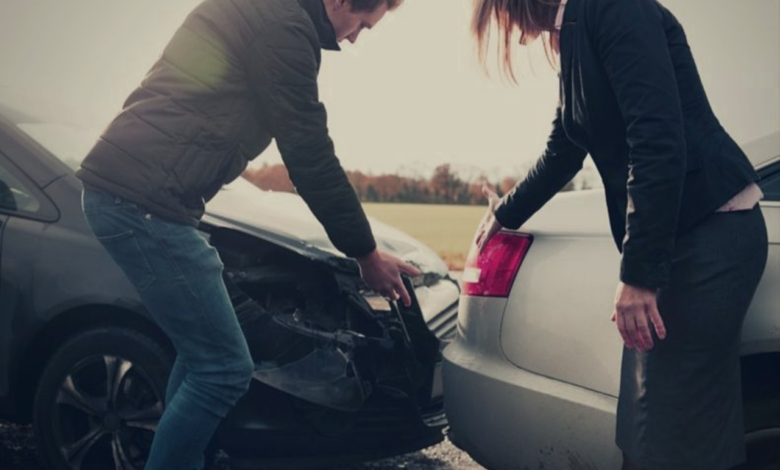How to Handle a Car Accident: Legal Steps You Must Take
Learn the essential legal steps after a car accident to protect your rights, document evidence, and handle insurance claims properly.

How to handle a car accident properly is crucial knowledge every driver should possess. Whether it’s a minor fender-bender or a major collision, being prepared can protect your rights, ensure your safety, and prevent costly legal mistakes. The moments following an accident are often chaotic, but taking the right legal steps immediately can make all the difference in insurance claims and potential legal proceedings. This guide will walk you through the essential actions you need to take to safeguard yourself legally and financially after an accident.
Understanding how to handle a car accident from a legal standpoint helps you avoid common pitfalls that could jeopardize your claim or expose you to liability. Many drivers unknowingly make critical errors like admitting fault at the scene or failing to document evidence that complicate their cases later. By following a clear, step-by-step approach, you can navigate the aftermath with confidence, ensuring you meet all legal requirements while protecting your best interests. Let’s explore the key steps you must take to handle a car accident correctly under the law.
How to Handle a Car Accident
Comprehensive Guide on Handling a Car Accident: Legal Steps You Must Take
Car accidents are stressful and chaotic, but knowing the right legal steps can make a significant difference in protecting your rights and securing fair compensation. Whether you’re at fault or not, adhering to proper procedures ensures that you meet legal obligations while strengthening your position in insurance negotiations or potential lawsuits. Below is a detailed breakdown of the legal steps you must take after a car accident.
Ensure Safety and Call Emergency Services
The immediate aftermath of a car accident demands quick yet careful action. First, check yourself and others for injuries. If anyone is hurt, call 911 immediately to request medical assistance. Even if the accident seems minor, reporting it to the police is crucial, as an official report serves as vital evidence for insurance claims and legal proceedings. Move vehicles out of traffic if possible, but avoid altering the accident scene before authorities arrive, as it may affect liability assessments.
Exchange Information with the Other Driver
After ensuring everyone’s safety, exchange necessary details with the other driver. Obtain their full name, contact information, driver’s license number, insurance details, and vehicle registration. Avoid discussing fault or making statements that could be used against you later. Stick to factual information and remain polite but cautious, as admissions of guilt can complicate legal and insurance matters.
Document the Accident Scene Thoroughly
Gathering evidence at the scene strengthens your case when filing an insurance claim or pursuing legal action. Use your smartphone to take photos of vehicle damage, license plates, road conditions, traffic signs, and any visible injuries. If there are witnesses, collect their names and statements. A police report will also serve as an official record, so ensure you obtain a copy for your records.
Seek Medical Attention Even If You Feel Fine
Some injuries, such as whiplash or internal trauma, may not show symptoms immediately. Visiting a doctor soon after the accident ensures that any injuries are documented, linking them directly to the incident. Medical records are critical when claiming compensation for medical expenses, so keep all reports, prescriptions, and receipts.
Notify Your Insurance Company Promptly
One of the most critical steps following a car accident is contacting your insurance provider as soon as possible ideally within 24 hours of the incident. Most insurance policies have strict reporting deadlines, and failing to notify them promptly could jeopardize your claim or even result in denial of coverage. When making the initial report, stick to the facts: provide the date, time, and location of the accident, along with basic details about the vehicles and drivers involved, but avoid speculating about fault or making definitive statements about injuries. Remember that insurance adjusters are trained to minimize payouts, so anything you say can potentially be used to reduce your settlement. Ask for a claim number and document the name of the representative you speak with, as you’ll likely need to reference this information in future communications.
Consult a Car Accident Attorney If Necessary
While many minor fender-benders can be resolved through standard insurance claims, there are critical situations where consulting a car accident attorney becomes essential. If your accident resulted in serious injuries, significant property damage, disputed liability, or involves a commercial vehicle or government entity, professional legal representation can dramatically impact your outcome. An experienced attorney understands how to navigate complex insurance policies, negotiate with aggressive adjusters.
Keep Detailed Records of All Expenses and Communications
Additionally, keep a detailed log of all communications with insurance adjusters, healthcare providers, and legal representatives, including dates, times, names of individuals spoken to, and summaries of discussions. This documentation can prove invaluable if disputes arise regarding coverage, liability, or compensation amounts. Consider organizing these materials in both physical and digital formats for easy access, and maintain them throughout the entire claims process, which can sometimes stretch for months. By being meticulous in your record-keeping, you strengthen your position and ensure you have the necessary support should you need to negotiate for fair compensation or present your case in court.
Follow Up on Your Insurance Claim and Legal Case
Insurance companies may delay or undervalue claims, so stay proactive. Follow up regularly and provide any additional information requested. If negotiations stall, legal intervention may be necessary to ensure fair compensation. By following these legal steps, you can navigate the complexities of a car accident with confidence, protecting your rights and securing the best possible outcome.
Read More: The Best Productivity Hacks for Working from Home
Conclusion
Knowing how to handle a car accident properly can make a significant difference in protecting your rights and securing fair compensation. By following the legal steps outlined—from ensuring safety at the scene and gathering evidence to notifying your insurance company and seeking legal advice when necessary—you can navigate the aftermath with confidence. Taking these measures not only helps in resolving claims efficiently but also safeguards you from potential legal and financial complications.
Car accidents are stressful, but being prepared and informed allows you to respond effectively. Whether dealing with minor fender-benders or more serious collisions, adhering to these legal guidelines ensures that you meet all necessary obligations while maximizing your chances of a favorable outcome. Stay calm, document everything, and seek professional assistance when needed to handle the situation with clarity and assurance.
FAQs
What should I do immediately after a car accident?
Ensure safety, call 911 if there are injuries, and report the accident to the police. Exchange information with the other driver and document the scene with photos.
Do I need a police report for a minor accident?
Yes, a police report provides an official record, which is useful for insurance claims and legal protection.
When should I contact my insurance company?
Notify your insurer as soon as possible, ideally within 24 hours, to avoid claim delays or denials.
Should I see a doctor if I don’t feel injured?
Yes, some injuries appear later, and medical documentation strengthens your claim for compensation.
Do I need a lawyer for a car accident claim?
If injuries are severe or liability is disputed, consulting an attorney ensures fair treatment and maximizes compensation.







